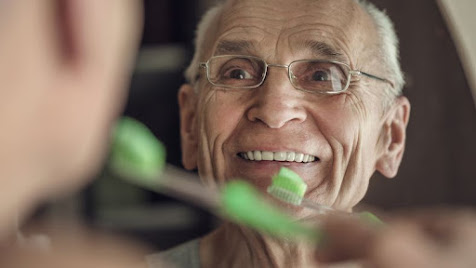Memorial Day is so much more than a holiday – it’s a time to remember those who have died while serving our country and celebrate what we stand for. Here are some great ideas for celebrating Memorial Day in assisted living with your loved ones, from our assisted living team in South Jersey.
#1 – A moment of silence
At 3 pm local time, it’s traditional that
everyone across the USA has a moment of remembrance for those who died in the
line of duty. Anyone can join in, and you can have a local musician follow the
moment of silence with the traditional Taps bugle call.
#2 – An informal gathering
After the moment of silence, it’s time to
share stories, reminisce, and enjoy each other’s company! A casual gathering
for residents, staff, and volunteers can be a wonderful way to connect with
other veterans in the assisted living community and spend time with friends and
family. Tea and coffee with cake and light snacks are the perfect accompaniment
to this gathering.
#3 – Stream a Memorial Day parade
Many residents in assisted living won’t be
able to attend parades in person, so it’s a great idea to set up a screening
space in the restaurant or communal room and live-stream parades from around
the country. Usually, there’s a great national broadcast program too, and this
can be played on TVs or computers in communal living areas.
#4 – Crafting, games, and themed activities
Leading up to Memorial Day, seniors can get
involved in making décor and crafts for the holiday, including remembrance
poppies, yellow ribbons, and bunting. As part of the day’s events, you can
include a range of activities that are social and easy for all abilities,
including games of dominoes and chess, cornhole, beanbag toss, and even
croquet. Make sure there are plenty of baked treats and foods to enjoy through
the event, like cherry or apple pie, hot dogs, watermelon, and other American
classics!
#5 – Invite speakers and veterans from your
local community
A good speaker can be a wonderful attraction
for seniors in assisted living, so chat with your community to find veterans
who would like to do a public speaking event for your assisted living family.
You can also have local, younger veterans come and visit your seniors to spend
time together and participate in your Memorial Day event. This is a great way
to show appreciation to veterans and their families who are in assisted living
and your larger community and shows what Memorial Day is really all about.
Join our vibrant, welcoming assisted living
community in Cape May County
UMC at The Shores is a beautiful community
offering assisted living in South Jersey. Our team is passionate about helping
seniors live full and rewarding lives in a safe and welcoming environment. With
a great calendar of events and social activities, some of the best dining in
town, and spacious apartment-style living, we’re the best place to be for
senior living. To find out more about assisted living in Cape May County, give us a call or
visit our website at https://theshores.umcommunities.org







